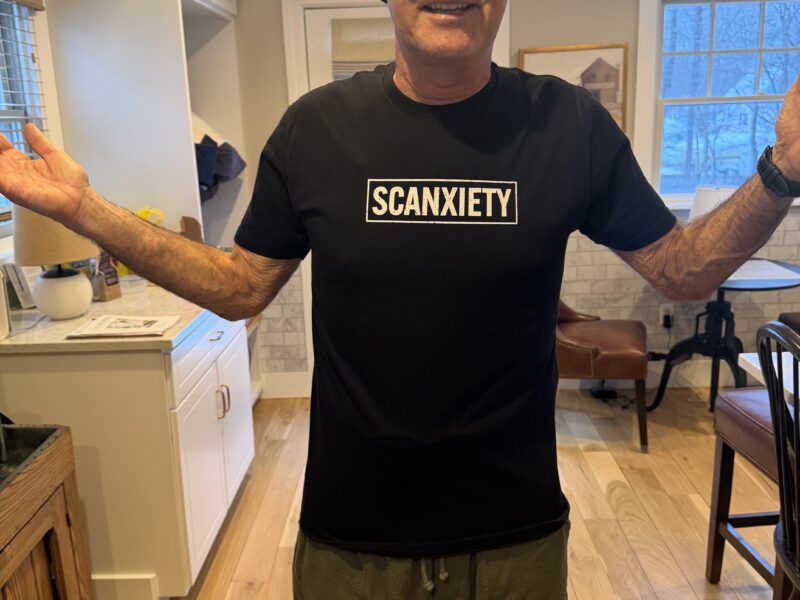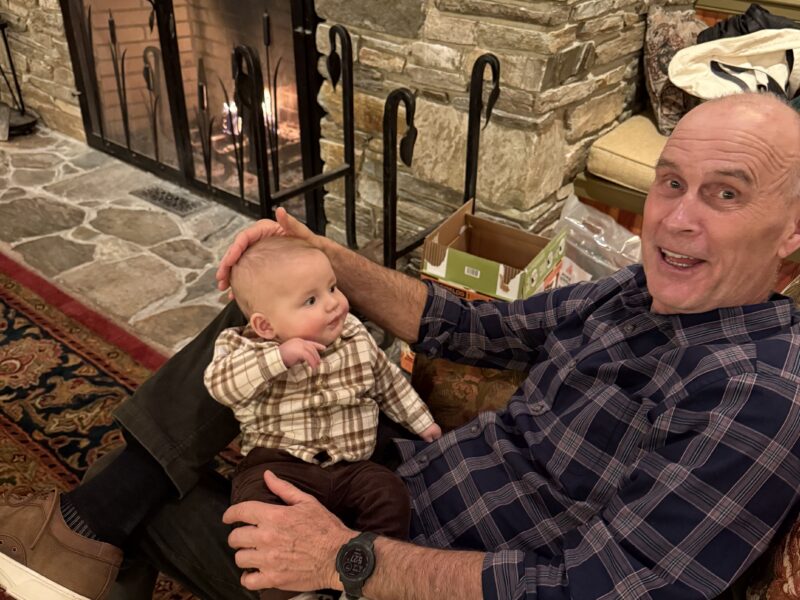
My dad was one of my favorite people to argue with. We had some doozies! I miss that.
The fact that he loomed so large in so many lives while I was trying to find my way in mine probably had something to do with it. In fact, I sometimes say that I was the only kid in the 60s more conservative than his father. It was the only way I could rebel in my home.

Throughout my life, I’ve heard people say, “Boy, you sure had a tough act to follow!” Maybe, but the years have led me to the realization that I’d much rather follow a hard act than an easy one.

I’ve also heard people call my dad things like a “philosopher teacher” or a “teaching philosopher.” That may have been true, but I’m not sure that people realize that he also possessed a great deal of plain old horse sense. Here are 10 lessons (plus a Bonus!) I took with me.
1) “Don’t let the architects tell you where to put the sidewalks.”
He once laid this on me while Hyde was in the midst of constructing a new building: “Tell the architects to leave the sidewalks out of the plan. Regardless of what they recommend, the kids are going to walk wherever they damn well please. So, wait a year or so after the building is completed. You’ll then see some paths leading to and around the building. Pave ’em.”

2) “Remember: When you give a kid a full scholarship, you accept an obligation to help them secure that same level of financial help in college. Otherwise, they can end up victims of a cruel joke.”
If forced to choose my favorite part of being head of school, I’d probably go with the act of awarding scholarships. My dad’s words reminded me that offering the tuition discount is the easy part. You must also champion that kid’s transition from school to college — especially with first-generation college-bound graduates — and sometimes beyond.

3) “Leave your Mansion office. Drive out of the campus gate. Continue on down to Leeman Highway. Turn around. Then drive back through the campus gate and continue driving as though you were visiting for the very first time as a prospective admissions family. Then: Never. Lose. That. View.”
Dad said this to me in 1987 when I first became Hyde’s head of school. I’d pass it along to any new head of any school, or for that matter, a new head of anything. You notice: Why is that dumpster in front of the building instead of behind it?… Wow, that Mansion is beautiful!… That dorm could use a new coat of paint… Look out for the ducks! (That one may be unique to Hyde.)

4) “Create the swan. Then reach up and over to drop the ball into the Grand Canyon.”
Dad’s recipe for shooting a foul shot. While he loved watching all Hyde teams play, the 3-sport — basketball, baseball, and football — coach-at-heart within never left his psyche. (Fun Fact: In 2012, he was inducted into the New Hampton School Hall of Fame for his 13 years — 1951-64 — as coach of 39 varsity teams.) The “swan” is what your hand should look like upon releasing the ball — Try it! — that is, after you have reached up and over to drop it into the Grand Canyon!

5) “Exeter’s excellence is reflected in its maintenance.”
You could say that this point is related to Point #2. During his coaching days at New Hampton, Dad obviously visited many different campuses, some with breathtakingly spectacular buildings and facilities. (I recall him describing a particularly opulent one as “What God would’ve built if he had the money.”) While Exeter may well have had more resources than any other school he ever visited, he was always especially impressed with the way they cared for their older buildings. I remember him saying, “During pre-game locker room talks, I would rub my hand across the top of the lockers… No dust at Exeter!”

6) “Never make a decision until you have to.”
Dad could be a planner’s nightmare. He may be the only person I have known who innovated while he was innovating!

7) “You can learn a lot from the kid with the worst attitude in school.”
As head of school, he spent a great deal of time with kids who would most likely have been expelled from other schools. Beyond the fact that he saw a lot of himself in these kids, he saw these encounters as great learning opportunities. For one thing, he would invariably learn what was really going on within the student body, the “unsanitized for your protection” view. For another, he reasoned that if he could help this kid turn the corner toward a more positive direction, he might find a key to helping other kids stuck in the same mindset. As a rule, he tended to feel that expulsion was bad for both the kid and the school.

8) “Democracy doesn’t work on a basketball court.”
Go with what works. Keep giving the ball to the hot hand. Teach your players to focus on the final score rather than individual stats. Balanced scoring is nice, but not as nice as winning.

9) “Borrow money for income-producing buildings. Raise money for gyms and libraries.”
During Hyde’s decidedly tuition-driven and next-to-no endowment early years, Dad was willing to go into “hock” in order to build, say, a new dorm or increase dining capacity but was reluctant to do so for buildings that primarily added beauty or comfort. That formula fueled Hyde’s founding and early years. It had its critics, but if you research the evolution and life cycle of boarding schools founded since WWII, you’ll see that very few survive today. Of those few, even fewer have the favorable asset-to-debt ratio Hyde has today.

10) “The cat’s on the roof…”
This one is based on a joke of unknown origin that has found its way into segments of business management folklore. (Google “Cat’s On the Roof Joke”) Without recounting it here, its main message is to help those who may need to give bad news to family members, boards, employees, employers, etc. It treads a fine line between compassion and manipulation, but once you hear it, you find yourself utilizing it in your interpersonal relations. Truth be told, it has evolved into a running joke in Laura’s and my marriage as well as our growing extended family!

BONUS: “I was always so far out in front of the board that they often did now know what to make of or do with me. They would end up being so preoccupied with trying to rein me in that I was freed up to focus on my vision.”
Not exactly the typical stuff passed along at an NAIS conference, but it was how he rolled. He was an entrepreneur in a field that can be less than conducive to that mindset. He loved the Hyde board, but he also argued and fought with them. I always sensed that he enjoyed doing so. And I guess that brings me back to this blog post’s opening sentence.
Onward, Malcolm Gauld


